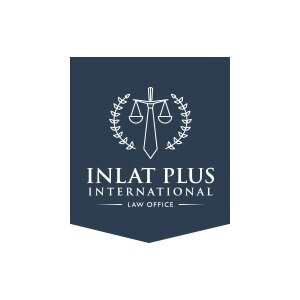Best Guardianship Lawyers in Latvia
Share your needs with us, get contacted by law firms.
Free. Takes 2 min.
Or refine your search by selecting a city:
List of the best lawyers in Latvia
About Guardianship Law in Latvia
Guardianship in Latvia is a legal relationship where a guardian is appointed to protect the interests of someone who is unable to make decisions for themselves. This can include minors, incapacitated adults, or individuals with disabilities.
Why You May Need a Lawyer
Legal assistance in Guardianship matters may be necessary in situations such as establishing Guardianship, disputes over Guardianship, or ensuring the rights of the ward are protected. A lawyer can help navigate the complex legal system and ensure the best outcome for all parties involved.
Local Laws Overview
In Latvia, Guardianship is governed by the Civil Law, specifically Sections 19 to 55. These laws outline the rights and responsibilities of guardians, the process for appointing a guardian, and the protection of the ward's interests.
Frequently Asked Questions
Q: How is a guardian appointed in Latvia?
A: A guardian is appointed by a court decision based on the best interests of the ward. The court considers the relationship between the guardian and the ward, the ward's wishes, and other relevant factors.
Q: What are the duties of a guardian in Latvia?
A: A guardian is responsible for managing the ward's affairs, making decisions on their behalf, and ensuring their well-being. They must act in the best interests of the ward and follow the court's instructions.
Q: Can a guardianship be terminated in Latvia?
A: Yes, a guardianship can be terminated by the court if the ward regains the capacity to make decisions for themselves, if the guardian is no longer able to fulfill their duties, or for other valid reasons.
Q: Can a guardian be removed in Latvia?
A: Yes, a guardian can be removed by the court if they fail to fulfill their duties, act against the ward's best interests, or are otherwise unfit to serve as a guardian.
Q: What rights does a ward have in Latvia?
A: A ward has the right to be heard in court proceedings related to their Guardianship, the right to have their wishes considered, and the right to be represented by legal counsel.
Q: Can someone challenge a Guardianship decision in Latvia?
A: Yes, interested parties can challenge a Guardianship decision by filing a complaint with the court and providing reasons why they believe the decision is not in the best interests of the ward.
Q: How are disputes between guardians and wards resolved in Latvia?
A: Disputes between guardians and wards can be resolved through mediation, negotiation, or court proceedings. The court will intervene if a resolution cannot be reached amicably.
Q: Are there alternatives to Guardianship in Latvia?
A: Yes, Latvia recognizes alternatives to Guardianship such as limited Guardianship, temporary Guardianship, or other arrangements that may be more suitable for the specific needs of the individual.
Q: Can a guardian make decisions without the ward's consent in Latvia?
A: A guardian is authorized to make decisions on behalf of the ward, taking into consideration the ward's wishes and best interests. However, they should consult the ward whenever possible and act in their best interests at all times.
Q: How can I find a lawyer for Guardianship in Latvia?
A: You can contact the Latvian Bar Association for a referral to a qualified lawyer specializing in Guardianship matters. It is important to choose a lawyer with experience in this area of law to ensure the best representation for your case.
Additional Resources
For more information on Guardianship in Latvia, you can visit the Latvian Ministry of Justice's website or contact the Guardianship Authority for assistance with legal matters related to Guardianship.
Next Steps
If you require legal assistance in Guardianship matters in Latvia, it is recommended to consult with a lawyer who can guide you through the legal process, represent your interests in court, and ensure the best outcome for all parties involved.
Lawzana helps you find the best lawyers and law firms in Latvia through a curated and pre-screened list of qualified legal professionals. Our platform offers rankings and detailed profiles of attorneys and law firms, allowing you to compare based on practice areas, including Guardianship, experience, and client feedback.
Each profile includes a description of the firm's areas of practice, client reviews, team members and partners, year of establishment, spoken languages, office locations, contact information, social media presence, and any published articles or resources. Most firms on our platform speak English and are experienced in both local and international legal matters.
Get a quote from top-rated law firms in Latvia — quickly, securely, and without unnecessary hassle.
Disclaimer:
The information provided on this page is for general informational purposes only and does not constitute legal advice. While we strive to ensure the accuracy and relevance of the content, legal information may change over time, and interpretations of the law can vary. You should always consult with a qualified legal professional for advice specific to your situation.
We disclaim all liability for actions taken or not taken based on the content of this page. If you believe any information is incorrect or outdated, please contact us, and we will review and update it where appropriate.
Browse guardianship law firms by city in Latvia
Refine your search by selecting a city.









